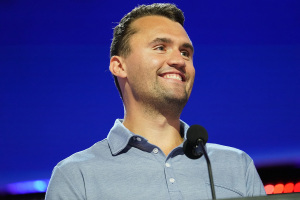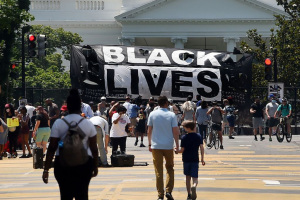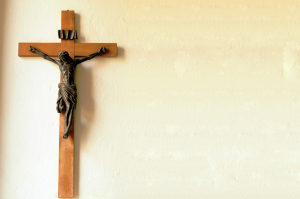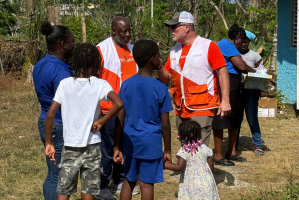Interview: Duck Dynasty's Jase Robertson Talks About Evangelizing to a Prank Caller and Being Mistaken for the Geico Caveman in 'Good Call'
 2 photos(Photo: Courtesy of Howard Books/Simon and Schuster)Jase Robertson of A&E's hit reality TV show, "Duck Dynasty" is author of the new book, "Good Call: Reflections on Faith, Family and Fowl," released on May 6, 2014.
2 photos(Photo: Courtesy of Howard Books/Simon and Schuster)Jase Robertson of A&E's hit reality TV show, "Duck Dynasty" is author of the new book, "Good Call: Reflections on Faith, Family and Fowl," released on May 6, 2014.Jase Robertson, who's best known for his sarcastic one liners in the reality TV show "Duck Dynasty," gets serious about faith by sharing his life's experiences in hunting, evangelism, marriage and parenting in his new book, Good Call: Reflections on Faith, Family, and Fowl.
Much like his Uncle Si, Jase maintains the humorous approach he's known for as he talks about how he managed to save his virginity until marriage, and the bag of pot a young man brought to a Bible study that he and his wife, Missy, hosted at their first home.
In the book, Jase is open about the anger he felt toward his father who had abandoned him and his two brothers; the uniting power of salvation when his father gave his life over to Jesus Christ; how his father's advice to R-U-N came in handy when a girl offered to let him undress her at a time when he was striving to save his virginity until marriage; and how the birth of his daughter, Mia, has enabled him and Missy to help other parents who have a child born with a cleft lip and soft palate.
Among the stories Jase shares in a chapter about "facial profiling" happened in an airport en route to speak to a Christian men's group in Montana. Since the event was being held right after hunting season, his beard was in "full bloom." After receiving suspicious looks and a pat-down from Homeland Security, he accidentally bumped into a woman who then screamed when she turned around and looked at him.
When he finally reached his gate and sat down, a young boy asked him for an autograph and he logically assumed the boy recognized him from "Duck Dynasty." After receiving the autograph, the boy asked Jase if he could ask him a question.
"Sure, buddy," Jase said. "Ask me anything you want."
The boy replied, "How much does Geico pay y'all?"
"Wait a minute," Jase said. "I'm not a caveman. I'm Jase the Duckman. You know, from 'Duck Dynasty.' Quack, quack?"
"It didn't take me long to realize the boy had no idea what I was talking about," he added.
The following is an edited transcript of The Christian Post's interview with Jase Robertson.
CP: Uncle Si, Phil, Miss Kay, and your wife and sisters-in-law have published books about your family and Christian faith, and everyone shared a few of their life experiences, scriptures and prayers in the book, Duck Commander Devotional. How is your book different, and what points do you want to get across to your fans?
Jase: I think people will realize just from seeing me on the show that we all have our different personalities. I think I took a little more aggressive approach in the actual writing of the book.
Because I'm a hunter, I'm an outdoorsman, there are a lot of details about duck hunting in the book, and I'm also a man of faith. I realized that someone else can't share your faith for you, or share things about hunting if they're not much of a hunter.
I used my ghost writer to organize my thoughts and I was able to bounce ideas off of him. But the reason I titled the book Good Call, is because there are three things that I discuss in the book: the call from God, our ultimate Father through the Gospel; the decisions that we make being good calls — whether they're good or bad, we all have these decisions that we make, so I share a lot of my experiences in trying to make good calls. And I write about making duck calls. It's something unique where I'm communicating a language between ducks.
CP: In the book you talk about seeing God's hand in nature, and how man is incapable of replicating the beauty He creates every day. Will you elaborate on this experience and when you first came to believe that God is actively participating in His creation?
Jase: What's interesting about my life is that my parents weren't Christians when I was a little kid. When dad turned his life around he was trying to be a better father and he started taking us hunting. I don't know if it was because I was moved that he was now trying to be a positive impact, but when I went duck hunting the first time that was really when I thought about God for the first time. I just looked around and I thought, "This is spectacular. Someone had to design this."
And so, I started my journey in search of the Creator and God at that moment, at 8 years old. We started going to church and every time I went duck hunting I was just so awe-struck by the beauty of our creation.
I started looking into the details of why bees make their honeycomb the size that the do — the strongest structure there is. I just started looking at the details and I thought, "There must be a God, and He's alive." I'm really big into that side of things, because it's not that I'm anti-science, it's just that I'm anti–"this all happened by chance."
You see God's fingerprint wherever you look — from the nervous system, to the eyeball, to DNA — you see all these details and to think that it happens by chance takes more faith than I have to offer.
CP: Was there a particular moment in your life when your faith was challenged? Or did you ever waiver in your faith?
Jase: I've always been independent and a loner, and my wife really helped me realize that I'm unique in that I didn't really experience peer pressure when I was a kid because I just didn't care what other people thought. But Missy has convinced me that that's abnormal.
I didn't have as many struggles. I just made the decision that I was never going to go get drunk or smoke dope. And I decided I was going to wait until I got married before I had sex. These are the kinds of decisions in which once I made up my mind, I just did it.
My biggest struggle was being vocal about my faith, because what I realized is: if you just try not to do the wrong things that doesn't really matter. It makes you kind of legalistic in your mindset.
I was proud that I was a Christian. I wanted to be a Christian. I think it's a great life. But my biggest struggle was being vocal about it. It took me a couple of years to finally get enough courage, and I share that moment in my book.
The first person I shared my faith with was a prank caller who didn't say a word for six hours over two nights. But that experience made me realize how powerful the message of Jesus is, and that's what gave me the spark to be vocal.
When I started sharing my faith, I really started sharing. I started out making a list of all the people I wanted to share it with, and I did; and as those people started responding. Then I just realized, you know what, I'm here to share the message of God, despite my flaws and the way I look. I began to understand that Jesus is representing me in heaven, and I'm going to represent Him on earth.
CP: In your son Reed's "I Am Second" video where he confesses to contemplating committing suicide at 14, he mentions that you told him that committing suicide would be the most selfish decision he could ever make. Will you explain your comment that committing suicide is a selfish decision?
Jase: I think that through the media and through people's interpretation they made it a little bigger than it was, and I want to clarify that. Once he (Reed) came out and shared that — because we've always been open about our struggles and about our life — there's never any surprise because we just come on out with it. But my deal is, when you're 14, when he was 14 to 16, he really struggled with his identity, and was concerned about if he fits in and different things, even before the show really got big. And then when the show hit, it was just so much attention and it's just hard for a kid to handle that.
Our youth director from church came out and said that Reed had said something about thinking about taking his life, and when that happens you have to take that seriously.
This is something that only takes a second. So when that happened, I went and woke Reed up out of bed, which I've done a few times, and we sat down and talked. And we basically came to that conclusion together that it's selfish. No matter how hard life is and what happens, that process of you overcoming these things is what makes you a stronger person
And it's kind-of the idea about not quitting and not giving up. You just think about how many stories there are in life where somebody refuses to quit or give up and how inspirational that is to other people. That's what we talked about for the three hours.
We cried together and we prayed together. But what it did was it gave us a good excuse to spend more time together and to talk about ways that we can be unselfish, and that being the medicine for us to overcome what he was thinking.
I want to tell you something, in the last two years Reed has made one of the most incredible maturity strides that I've ever witnessed. I mean he is doing awesome. He's writing music, he's learned how to play about six or seven different musical instruments; his school work has gone out the roof. He's an incredible artist, he's an incredible singer, and he goes and leads a lot of events. And I'll go places to speak and share my faith, we'll share about our family, and then he'll sing at the end and he brings the house down every time.
There's something about an 18-year-old kid writing a song from the heart, and he can perform it so well and sing and play all these instruments. He's never had a lesson. He was born with this ability to hear a sound and go in there and replicate it on an instrument. So we've been trying to encourage him to use his talent.



























